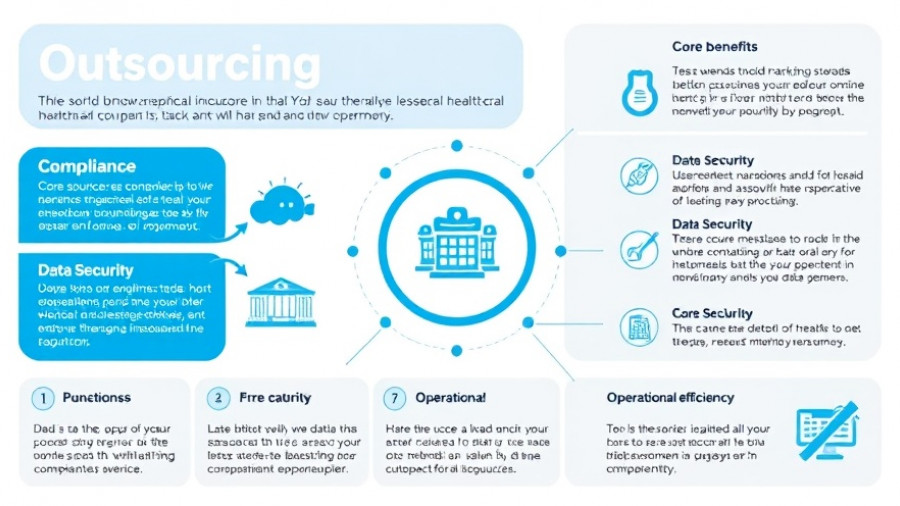
Driving Growth in APAC: The Role of Offshore Outsourcing
The fintech sector in Asia-Pacific (APAC) is undergoing rapid transformation, driven largely by innovative technologies and changing consumer demands. Offshore outsourced loan processing has emerged as a crucial strategy for fintech companies looking to scale operations and enhance their service offerings. As businesses strive to streamline processes, enhance efficiency, and reduce costs, outsourcing non-core functions such as data entry and underwriting becomes a hot topic among professionals in the industry.
Why Offshoring? Key Advantages for Fintech
Offshoring loan processing enables fintech firms to leverage specialized skill sets by tapping into a global talent pool. Moreover, it allows for significant cost savings, as companies can operate with lower overheads when processing is managed in countries with lower labor costs. This not only boosts margins but also accelerates the speed at which fintechs can innovate and release new products, such as e-commerce SEO techniques and mobile marketing strategies.
Impact on Customer Experience and Engagement
As firms segment their offerings through artificial intelligence and data analytics, the potential for improved customer engagement strategies becomes clear. Offshore teams that specialize in customer support can enhance user experience optimization, ensuring that consumers receive timely and accurate responses to their queries. This responsiveness significantly contributes to higher customer satisfaction rates, fostering brand loyalty in a competitive market.
Fortifying Compliance and Security
With tightening regulations painting the landscape of APAC fintechs, the need for compliance in loan processing has never been greater. Offshore outsourcing partners often bring in-house expertise that companies can harness to ensure they're navigating compliance adequately while focusing on growth. This expertise can mitigate risks associated with digital marketing tools and marketing automation integration.
Navigating Challenges in Offshore Outsourcing
Despite its advantages, outsourcing comes with its own set of challenges. Companies must grapple with communication barriers, cultural differences, and potential data security concerns. Firms selecting offshore partners should prioritize those with proven records in data protection, allowing them to confidently share sensitive information without jeopardizing customer trust.
Measuring Success: KPIs in Offshoring
For fintech companies leveraging offshore loan processing, understanding the key performance indicators (KPIs) driving success is essential. Metrics such as project turnaround time, error rates in processing, and customer satisfaction levels provide invaluable insights. Implementing real-time analytics ensures that businesses can adapt marketing campaign analysis strategies promptly and efficiently.
The Future of APAC Fintech: Innovations and Trends
As we look to the future, we can anticipate further advancements in technology facilitating offshore operations. The use of blockchain in digital marketing and automated customer interactions through chatbots are becoming mainstream. Staying updated on marketing technology trends, companies will need to pivot quickly to adopt new trends and consumer preferences.
Conclusion: Embracing Outsourcing for Growth
In summary, offshore outsourced loan processing is not just a mere cost-saving conversation; it is a strategic decision that can propel APAC fintech companies toward future sustainability and success. As the industry continues to expand, businesses must effectively navigate the landscape to harness the full potential of outsourcing. Consider embracing these insights to refine your strategic plans and stay ahead in a rapidly evolving marketplace.
Take action today and explore how offshore outsourcing can revolutionize your fintech operations, enhancing both efficiency and customer satisfaction.
 Add Row
Add Row  Add
Add 




Write A Comment